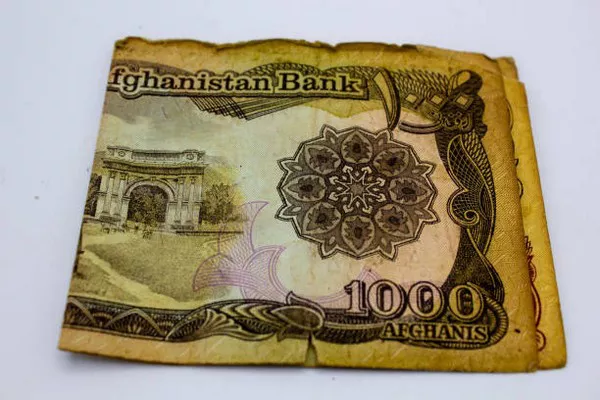In an increasingly interconnected world, the need for efficient and secure cross-border financial transactions has become paramount. For individuals seeking to send money to Afghanistan, navigating the complex landscape of international remittances requires careful consideration of various factors such as reliability, cost-effectiveness, and speed. In this article, we will explore the diverse methods available for sending money to Afghanistan, shedding light on the advantages and considerations associated with each.
Traditional Banking Channels:
One of the most common ways to send money to Afghanistan is through traditional banking channels. Most major banks offer international wire transfer services, allowing individuals to send funds securely to recipients in Afghanistan. While this method ensures a direct transfer to the recipient’s bank account, it may not be the most cost-effective option due to high fees and unfavorable exchange rates.
Moreover, the processing time for international wire transfers can be relatively slow, taking several business days for the funds to reach the recipient. This delay can be a significant drawback, especially in urgent situations. Additionally, individuals must be mindful of potential intermediary bank fees that may further increase the overall cost of the transaction.
Money Transfer Operators (MTOs):
Money Transfer Operators, or MTOs, have gained popularity as alternative channels for sending money to Afghanistan. Companies such as Western Union, MoneyGram, and Ria provide convenient and accessible services for individuals looking to transfer funds across borders. MTOs often have a vast network of agent locations, making it easy for recipients to collect cash in person.
One notable advantage of using MTOs is the speed of transactions, with many offering same-day or next-day delivery options. However, it’s crucial to carefully review the fees associated with these services, as they can vary significantly. Additionally, the exchange rates provided by MTOs may not be as favorable as those offered in other financial channels.
Digital Payment Platforms:
The rise of digital payment platforms has revolutionized the way people send money globally. Platforms like PayPal, Skrill, and Payoneer offer users the ability to send funds securely and conveniently. Users can link their bank accounts or credit cards to these platforms, facilitating quick and efficient transactions.
Digital payment platforms are particularly advantageous for those who prioritize speed and convenience. Transfers through these platforms are often processed within minutes, providing a real-time solution for individuals with urgent financial needs. However, users should be aware of potential fees associated with currency conversion and international transfers.
Cryptocurrency Transfers:
In recent years, the adoption of cryptocurrencies has opened up new possibilities for cross-border transactions. Bitcoin, Ethereum, and other digital currencies offer an alternative means of sending money to Afghanistan. Cryptocurrency transactions are decentralized, providing users with a degree of anonymity and security.
While cryptocurrency transfers may appeal to those who value privacy and want to explore innovative financial solutions, it’s essential to consider the volatility of digital currencies. The value of cryptocurrencies can fluctuate significantly, impacting the amount received by the recipient. Additionally, regulatory uncertainties and limited acceptance may pose challenges for widespread adoption.
See Also: Is It Legal To Send Money To Afghanistan?
Considerations for Sending Money to Afghanistan:
1. Exchange Rates:
When sending money to Afghanistan, it’s crucial to pay attention to exchange rates. Different financial channels offer varying rates, and even a slight difference can significantly impact the amount received by the recipient. Compare rates across different platforms to ensure you get the best value for your money.
2. Fees and Charges:
Understanding the fees associated with each transfer method is essential. Some services may have transparent fees, while others may include hidden charges. Consider the overall cost of the transaction, including both explicit fees and any potential impact on exchange rates.
3. Security Measures:
Prioritize the security of your financial transactions. Choose reputable and well-established service providers to minimize the risk of fraud or unauthorized access. Look for encryption and authentication measures implemented by the chosen platform to ensure the safety of your funds.
4. Speed of Transfer:
Assess the urgency of your transaction and choose a method that aligns with your timeline. Traditional banking channels may take longer, while MTOs and digital payment platforms often offer quicker options. Cryptocurrency transfers can provide near-instantaneous transactions but come with their own considerations.
5. Recipient Accessibility:
Consider the convenience for the recipient when selecting a money transfer method. Traditional banking may require the recipient to have a bank account, while MTOs and digital payment platforms offer cash pickup options. Ensure that the chosen method aligns with the recipient’s preferences and accessibility.
Conclusion:
Sending money to Afghanistan involves a careful evaluation of available options to ensure a secure, cost-effective, and timely transaction. Whether opting for traditional banking channels, MTOs, digital payment platforms, or exploring the innovative realm of cryptocurrencies, individuals must weigh the advantages and considerations of each method.
In an ever-evolving financial landscape, staying informed about the latest developments and emerging technologies is key to making informed decisions. By understanding the nuances of various money transfer methods, individuals can navigate the complexities of cross-border transactions and provide crucial financial support to recipients in Afghanistan.


